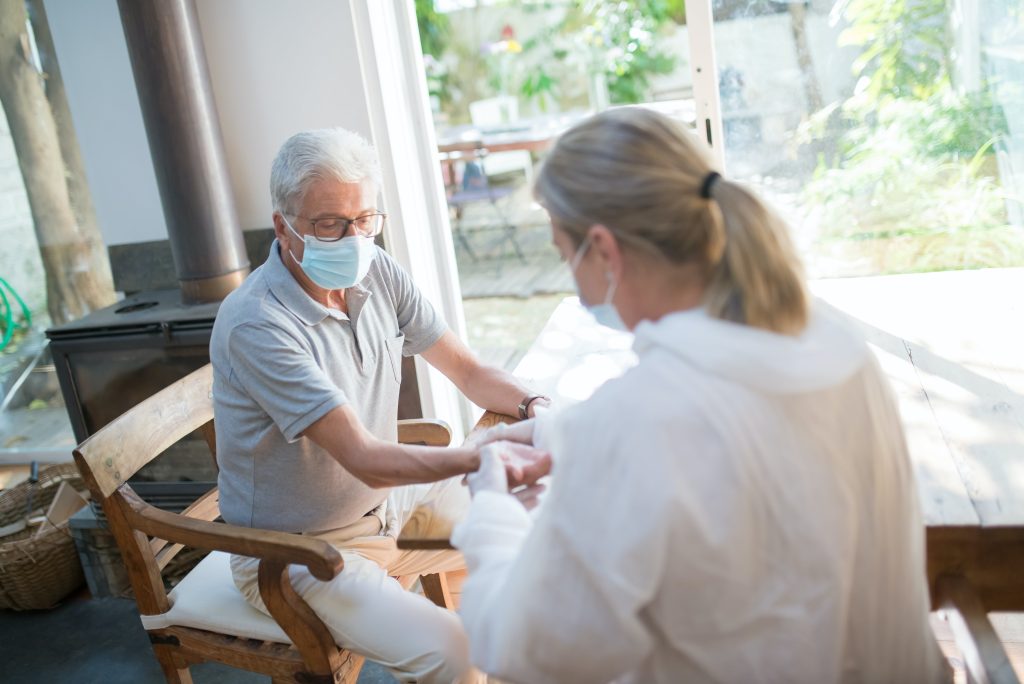As we get older, managing our health becomes even more vital, especially for the elderly. With advancing age, the risk of numerous health issues, including cancer, increases. According to the American Cancer Society, 60% of all cancer cases are diagnosed in individuals aged 65 and above.
This underscores the critical importance of cancer screenings for seniors to maintain optimal health. In this article, we will discuss why cancer screenings are essential for older adults and offer practical advice for navigating this key aspect of healthcare.
The Importance of Cancer Screenings for Seniors
Cancer screenings play a crucial role in senior health, serving as an early warning system against various health challenges associated with aging. Given the high incidence of cancer among those over 65, these screenings are fundamental for early detection and prompt treatment when it’s most effective. Seniors face heightened cancer risks due to factors like smoking, poor diet, and exposure to environmental toxins, making regular screenings an essential component of their healthcare routine.
The Impact of Early Detection
The value of early detection through cancer screenings is immense. The American Cancer Society reports that timely screenings can decrease death rates from breast, colon, and cervical cancers by up to 60%. Early detection allows for faster treatment, substantially improving outcomes and increasing survival rates.
Recommended Screenings for Seniors
Cancer screening guidelines for seniors vary depending on age, gender, and individual risk factors. Here is a detailed guide to recommended screenings for different types of cancers:
Breast Cancer
Breast cancer screenings follow specific guidelines based on age and risk factors. Women aged 50-74 are typically advised to have mammograms every two years. Those with a family history or heightened risk factors may need to begin screenings earlier or have them more frequently. Women over 75 should consult with their healthcare providers to evaluate the benefits and drawbacks of continuing mammograms.
Prostate Cancer
Prostate cancer screenings are recommended for men aged 50 and above. It’s important to have a detailed discussion with healthcare providers about the benefits and risks of these screenings. Men with a family history of prostate cancer or other risk factors may need to start earlier or undergo more frequent screenings. Additionally, men over 75 should discuss with their doctors the continued advantages and potential risks of ongoing screenings.
Colon Cancer
At age 50, both men and women should start undergoing colorectal cancer screenings. Screening options include colonoscopies, sigmoidoscopies, or stool tests. Individuals with a family history or higher risk factors may need to start earlier or have more frequent screenings to ensure timely detection and treatment.
Lung Cancer
For seniors with a history of smoking, annual low-dose CT scans are recommended for lung cancer screening. Non-smokers or those who quit smoking more than 15 years ago generally do not require these screenings, aligning with a more personalized healthcare approach.
Cervical Cancer
Cervical cancer screenings begin with Pap tests at age 21, repeated every three years until age 65. Women over 65 with consistently normal results may discontinue these tests. However, those with a history of cervical cancer or high-risk factors may need to continue screenings to remain vigilant against potential threats.
Women who have had cervical cancer or have elevated risk factors may need to continue screenings beyond 65.
Additional Considerations
Beyond age and gender, factors such as personal and family medical histories, lifestyle choices, and ethnicity can influence cancer screening recommendations. Engaging with healthcare providers in these discussions facilitates the creation of tailored screening schedules that meet your specific health needs.
Conclusion
Cancer screenings for seniors are a proactive measure, not just a one-time solution. By adhering to personalized guidelines and discussing individual risks with healthcare providers, seniors can ensure they receive the necessary screenings suited to their age and health status. Early detection significantly enhances the chances of successful treatment. Don’t delay—schedule your cancer screenings today for a healthier and safer future.
